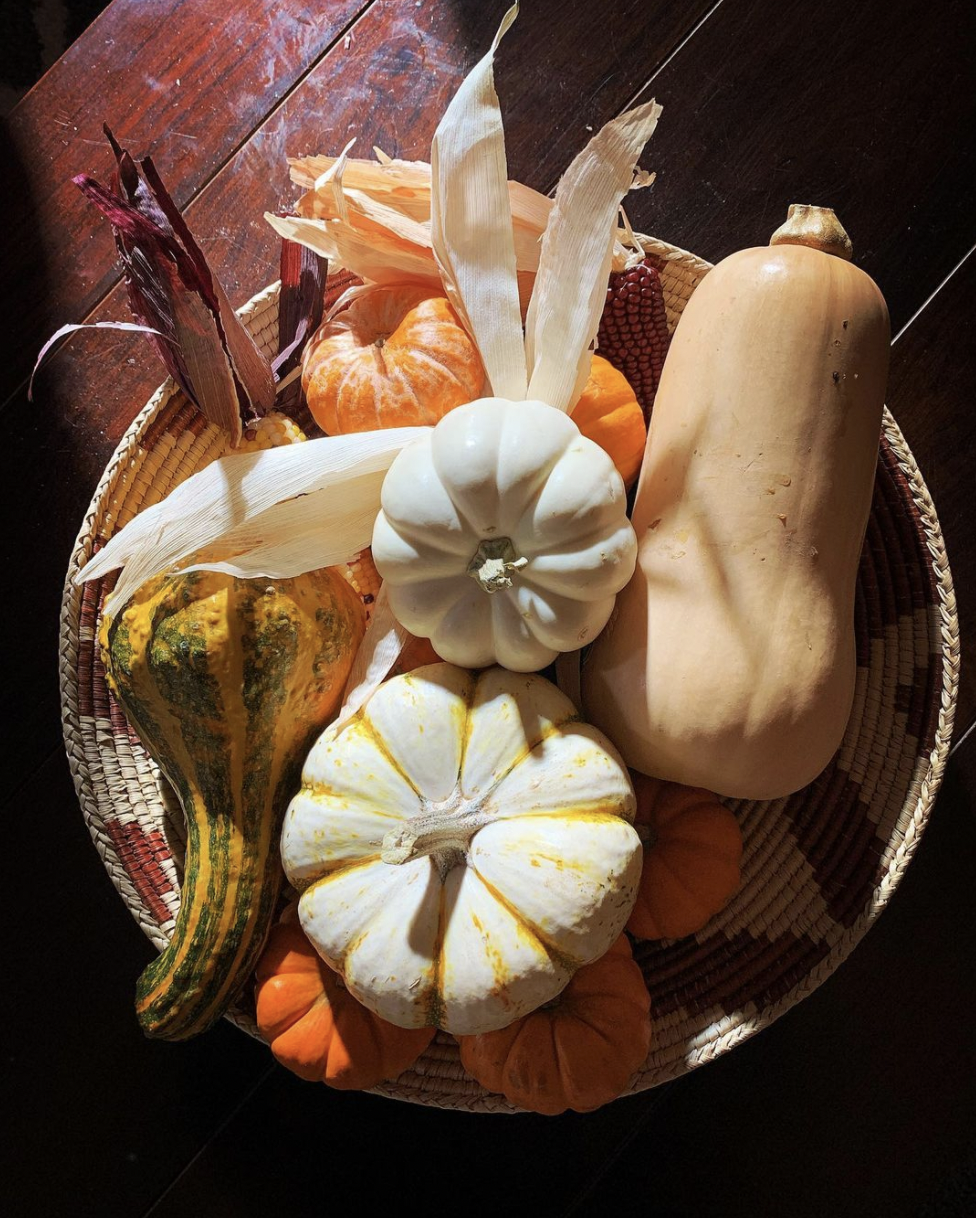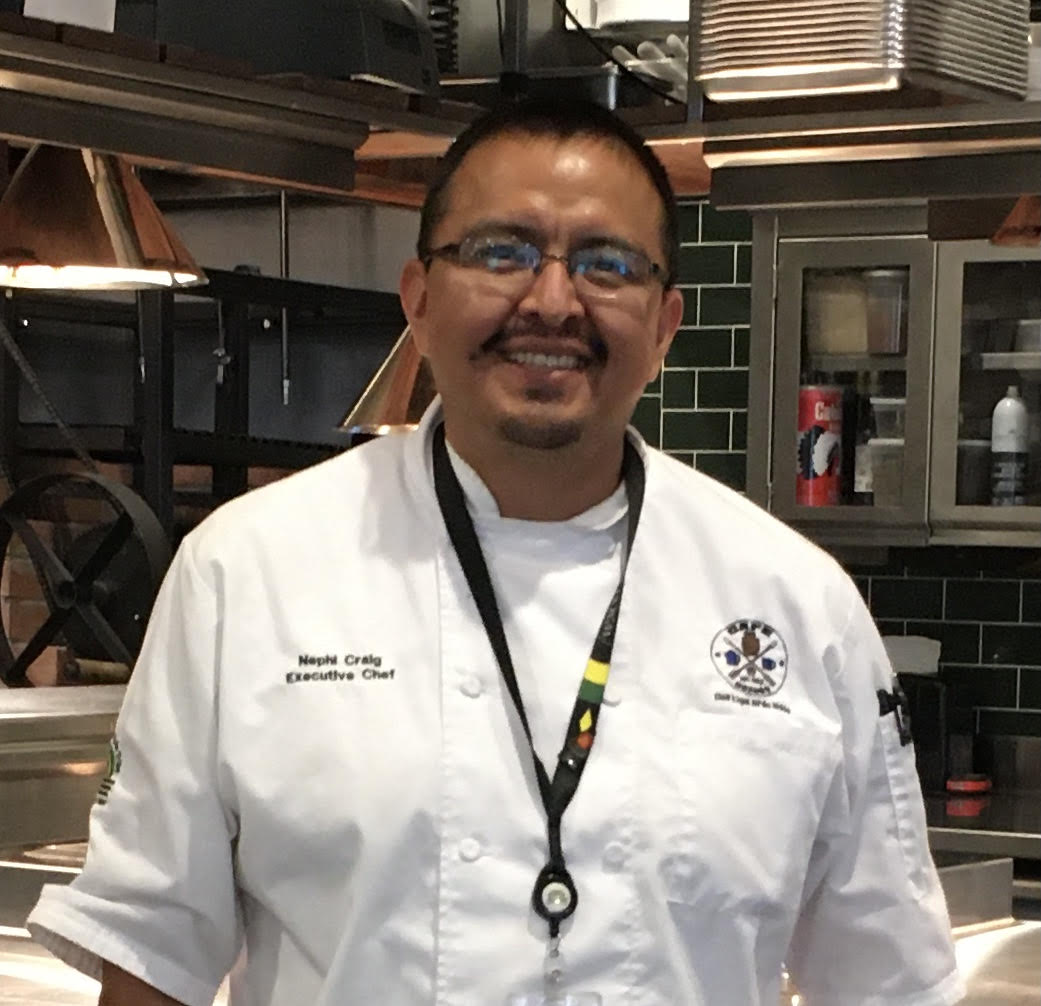
- Details
- By Chef Nephi Craig, BHT, ACRPS
Guest Opinion. Every year in November, Americans either knowingly or unknowingly celebrate settler colonialism, by gathering friends and family members of all ages to perpetuate a false narrative. Indigenous peoples have always been ignored when we have voiced our truth on the fourth Thursday in November.
Often, we accept the holiday as a time to gather our families, and while some of us do not celebrate the false narrative at all, others take the opportunity to have a day off from work and daily routines. The perspective and opinions will vary from place to place and family to family.
Want more Native News? Get the free daily newsletter today.
I grew up celebrating the fourth Thursday in November with my family, but when I was young, the reality became clear that the fourth Thursday in November can be considered a celebration of a litany of injustices — genocide, oppression, erasure, ecocide, cultural appropriation, colonization, imperialism, capitalism, institutional racism, and more.
Fortunately, there is a central theme in the gathering to celebrate this false narrative that contains the actual scientific truth about our Indigenous history and our experience with cultural erasure and injustices. Every year, we plan our travels, plan our menus, and plan to meet loved ones, but rarely do we plan to discuss the truth about this particular holiday that provides us the opportunity to take time off and do all that. We rarely consider that the green beans, the pumpkins, the corn, the beans, the types of squash, and delicious tart cranberries are important Indigenous foods. As we plan our menus, we might not think about how the corn, beans, squash, chocolate, and chilies are all Indigenous foods that changed the world forever.

People reminisce about their favorite recipe and who passed it to whom, but rarely if ever is it discussed who passed the cultivars of the American continent to whom. It is not common knowledge that there were no tomatoes in Italy before 1500. It is not common knowledge that there were no corn, beans, squash, or chilies anywhere in Eurasia prior to 1500. It is not common knowledge that the interplanting of corn, beans, and squash is a profound example of traditional ecological knowledge that is not only powerful in terms of soil science and plant nutrition, but also in that when combined, those three vegetables produce a complete protein. As people gather on the fourth Thursday in November, it might never be discussed how intricate, ancient, and sophisticated trade routes enabled the transmission of that knowledge, through the exchange of oral stories, feathers, shells, animals, and most important, in foods and in seeds.
Seeds are the carriers of knowledge, wisdom, science, culture, and experience. The seeds of Indigenous cultivars like corn, beans, and squash traveled thousands of miles north and south from central Mexico through generations of Indigenous families and farms, constantly evolving and adapting to the climates as they moved with people through the terrain of Mexico into South America, into what is now Peru, Brazil, and Argentina. These cultivars would travel, adapt, and evolve as they traveled north into what is now the American Southwest, into the Great Plains, the California coast, into the Pacific Northwest, and eastward into the Northeast, enhancing and providing vitality for the millions of Indigenous peoples that thrived with food-ways as a cultural currency that fueled our lives, markets, and societies.
It is Indigenous foods that tell a true version of the American experience. Native American cuisine is the foundational terroir of all contemporary regional cuisines. The family turkey that is usually the centerpiece of the holiday meal is an important animal that is Indigenous to the Americas. There are thousands of types of flora and fauna that are indigenous to the Americas, and many of them offer lessons about the ancestral intelligence of the first people to inhabit the Americas. These Indigenous foods have revolutionized every major cuisine around the world. Indigenous science, behavioral health, parenting techniques, commerce, economies, and wellness and recovery can all be articulated through food.
Could it ever be possible that we would stop celebrating a false narrative that perpetuates cultural erasure, colonialism, and the dehumanization of the Indigenous peoples of America? Let’s take a more human look at what lessons are held in the landscapes we inhabit today. Could we investigate further the lessons to be learned from plants and animals as we try to “cook locally” and “source sustainably,” while trying to “reduce our carbon footprint”? Could we actually turn to Indigenous values and know that autumn is a time when life and death meet, and we plan for a new beginning in the spring? Could we accept the Indigenous value and belief that the harvest time is a sacred time of hard work, love, and respite? It makes sense that if we are going to honor Indigenous people’s voices, then we should also honor the voices of the landscapes and the voices of the foods, and allow Indigenous peoples to reclaim and rewrite the American narrative to celebrate the fourth Thursday in November as Indigenous Foods Day. Because that is what it has always been about, anyway.
Chef Nephi Craig is the founder of the Native American Culinary Association, a network of Native cooks, chefs, scholars, farmers, and community members devoted to the development and preservation of Native American foodways. Craig, who recently launched Café Gozhóó, a restaurant and nutritional recovery clinic under the aegis of the Rainbow Treatment Center, was featured in the docomentary film "Gather" that is now available on Netflix.
More Stories Like This
The SAVE America Act Threatens Native Voting Rights — We Must Fight BackThe Presidential Election of 1789
Cherokee Nation: Telling the Full Story During Black History Month
Jesse Jackson Changed Politics for the Better
Native News Online at 15: Humble Beginnings, Unwavering Mission
Help us defend tribal sovereignty.
At Native News Online, our mission is rooted in telling the stories that strengthen sovereignty and uplift Indigenous voices — not just at year’s end, but every single day.
Because of your generosity last year, we were able to keep our reporters on the ground in tribal communities, at national gatherings and in the halls of Congress — covering the issues that matter most to Indian Country: sovereignty, culture, education, health and economic opportunity.
That support sustained us through a tough year in 2025. Now, as we look to the year ahead, we need your help right now to ensure warrior journalism remains strong — reporting that defends tribal sovereignty, amplifies Native truth, and holds power accountable.
 The stakes couldn't be higher. Your support keeps Native voices heard, Native stories told and Native sovereignty defended.
The stakes couldn't be higher. Your support keeps Native voices heard, Native stories told and Native sovereignty defended.
Stand with Warrior Journalism today.
Levi Rickert (Potawatomi), Editor & Publisher
